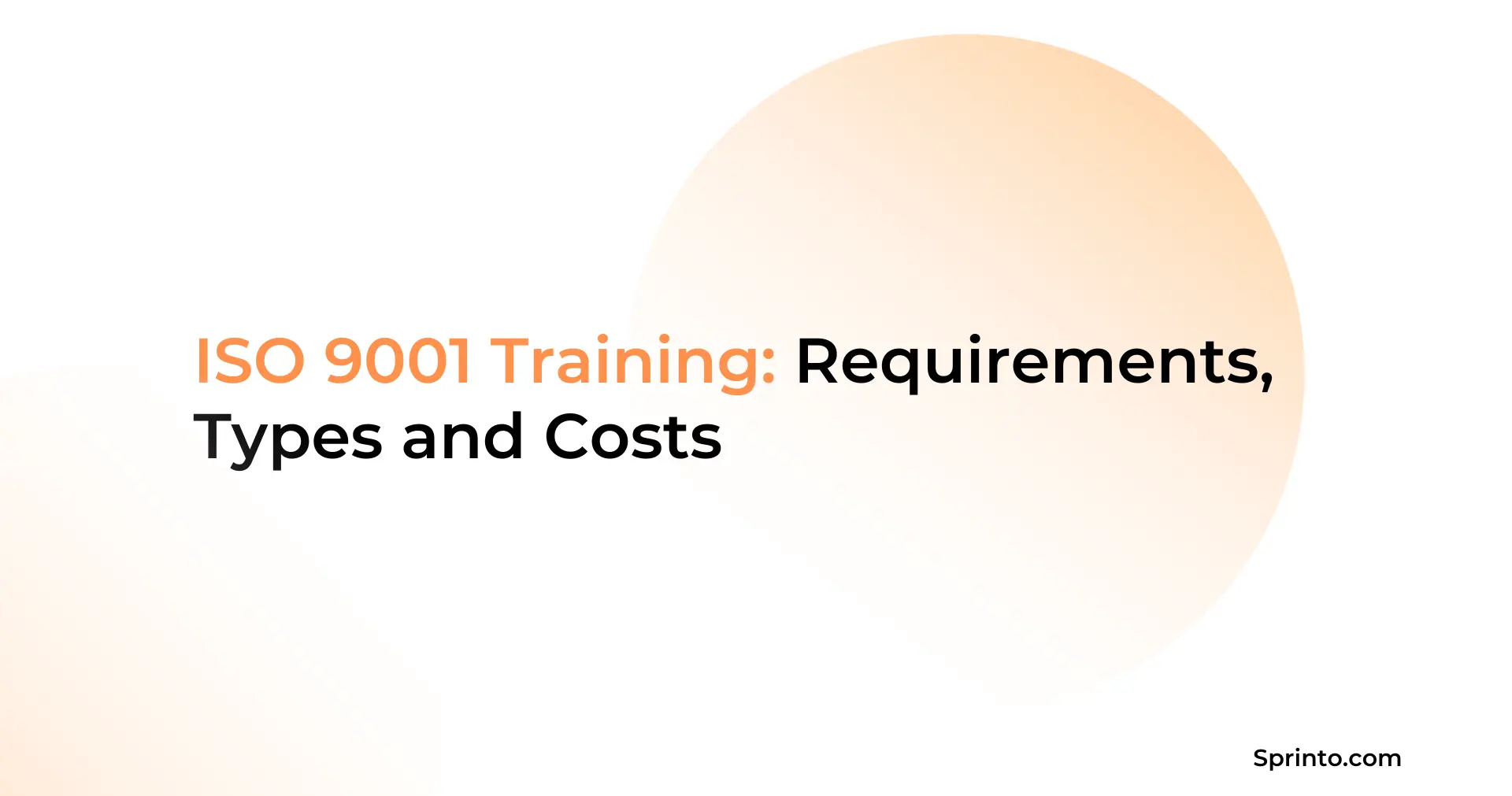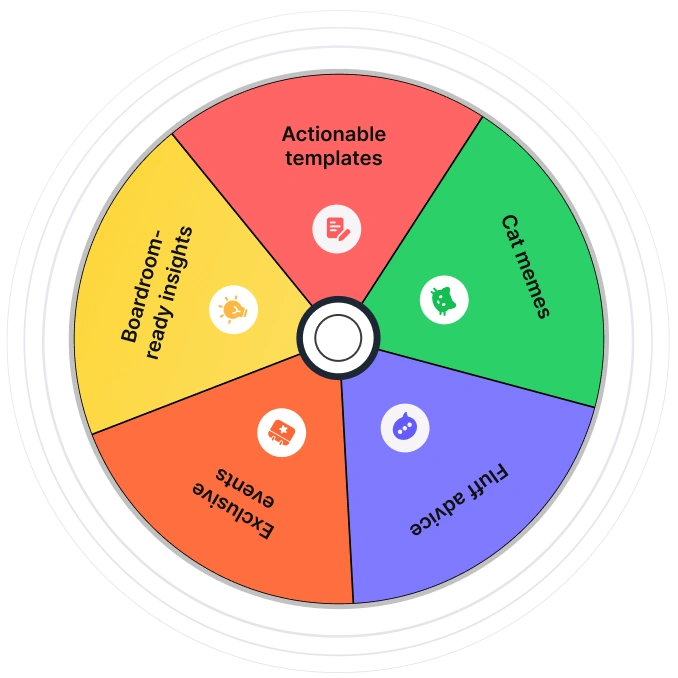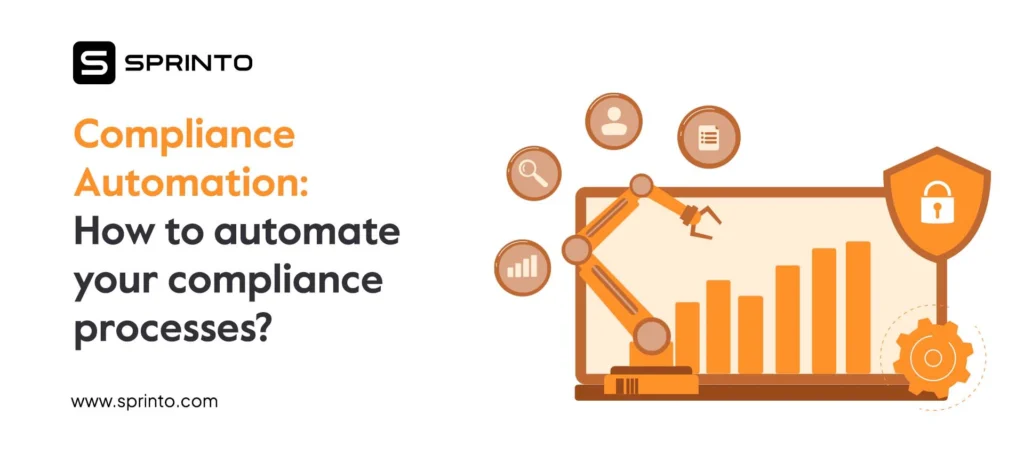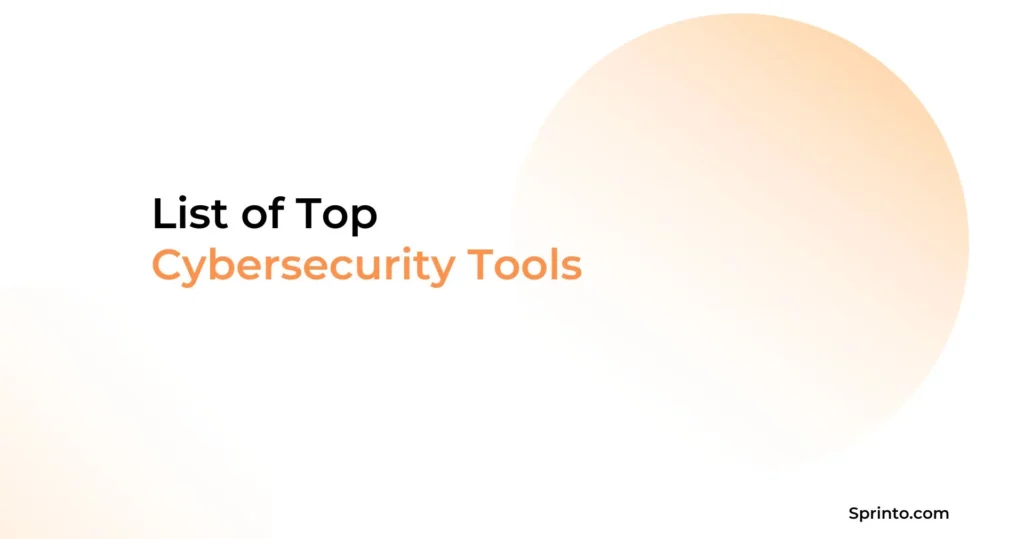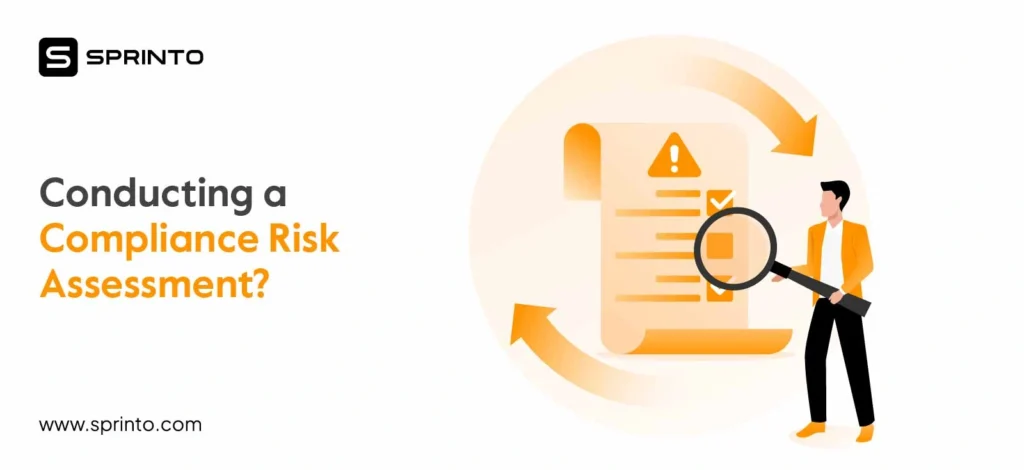ISO 9001 is not about theory. It is about operational discipline. As the global standard for quality management systems (QMS), it defines how high-performing companies create consistent, efficient operations.
ISO 9001 training ensures your QMS works in practice, not just on paper. For companies, that means tighter processes, lower costs, and greater customer satisfaction. For employees, it builds high-leverage skills that accelerate careers.
This guide explains what ISO 9001 training delivers, which course to choose, and what the benefits are.
- There are two types of ISO 9001 training: one for building in-house expertise (via Internal Auditor training) and one for leadership (via Lead Auditor training).
- ISO 9001 training ensures improved business performance in key areas, such as organizational context, leadership, planning, support, operations, performance evaluation, and improvement.
- To choose the right ISO 9001 training, you need to evaluate the course duration, costs, which format is right for you, and which team the course will benefit.
ISO 9001 Training: What It Is and Why It Matters
ISO 9001 training is a program that provides a deep dive into the requirements of the ISO 9001 standard on how to build and implement a Quality Management System. It usually involves two types of training: internal auditor training, which prepares individuals to assess their own organization’s QMS, and lead auditor training, which qualifies professionals to conduct third-party audits on behalf of certification bodies.
ISO 9001 training covers the following seven quality management principles:
- Customer focus (consistently meeting and exceeding customer requirements)
- Leadership (building organizational unity and purpose so that people can meet the quality standards)
- Engagement (ensuring all employees are competent, empowered, and engaged in delivering quality)
- Process (managing activities as interconnected processes to achieve consistent and predictable results)
- Improvement (recognizing the need for continuous enhancement of products, services, and processes)
- Evidence-based decision-making (making decisions based on the analysis and evaluation of data and information)
- Relationship management (cultivating mutually beneficial relationships with interested parties, including suppliers)
ISO 9001 is essential because it equips your team with tools to solve common organizational problems, such as inconsistent product or service quality, inefficient internal processes, high rates of customer complaints, and difficulty in scaling operations.
Imagine a medium-sized manufacturing business specializing in custom components for the automotive industry. It’s suffering from customer complaints, leading to costly reworks and missed deadlines. A traditional QMS means product inconsistencies due to a lack of knowledge and experience among employees. The result: unnecessary firefighting by quality managers.
If the team gets enrolled in an ISO 9001 internal auditor training, it can help them with process mapping, risk-based thinking, and how to conduct effective internal audits. This will help the team bring down manufacturing defects, boost production efficiency, and earn satisfied customers.
ISO 9001 Training Types: Internal Auditor and Lead Auditor Training
There are two paths quality and compliance personnel in organizations can take to improve the organization’s QMS: an ISO 9001 internal auditor course and an ISO 9001 lead auditor course.
ISO 9001 Internal Auditor Course: Building In-House Expertise
An ISO 9001 internal auditor training is a type of training that’s designed for individuals to equip them to conduct first-party audits within their own organization. The ISO 9001 internal auditor certification involves understanding the standard’s clauses, learning audit principles, planning and executing internal audits, reporting findings, and following up on corrective actions.
An internal auditor’s role covers verifying if processes are being followed, identifying non-conformities and opportunities for improvement, providing feedback to management on QMS effectiveness, and helping prepare the organization for external audits by Certification Bodies.
Who it is for: Quality managers who need to oversee an internal audit program, compliance officers who need to ensure adherence to internal and external quality standards, and anyone who’s part of the internal audit team.
Top 3 ISO 9001 internal auditor courses
BSI (British Standards Institution)
- BSI offers a two day Internal Auditor training , combining on-demand ISO 9001 requirements modules with instructor-led internal audit workshops. Upon course completion, you earn a BSI “Mark of Trust” which adds to your credibility.
ASQ (American Society for Quality)
- ASQ provides a Certified Internal Auditor training aligned with ISO 9001:2015 and ISO 19011:2018 which is delivered as a three-day virtual or face-to-face workshop with hands-on audit scenarios and two competency exams.
LRQA: Lloyd’s Register Quality Assurance
- LRQA offers a two‑day Internal QMS Auditor course globally, accredited by CQI‑IRCA. It equips professionals with skills to conduct effective internal audits aligned with ISO 9001:2015 and is widely regarded as a global benchmark.
ISO 9001 Lead Auditor Course: Mastering External Audits
An ISO 9001 lead auditor training is an advanced and intensive program designed for individuals who aspire to lead audit teams, manage full audit programs, and conduct third-party audits.
The ISO 9001 lead auditor training dives deeper into audit management techniques, team leadership, conflict resolution during audits, advanced reporting, and interaction with various stakeholders, including Certification Bodies.
A lead auditor plans the entire audit program, leads audit teams, communicates with the auditee’s top management and stakeholders, makes final decisions on non-conformities and audit conclusions, and manages complex audit situations, maintaining impartiality throughout the process.
Who it is for: Quality managers who need to advance their careers and potentially become external auditors, compliance officers who want to understand audit governance and external audit requirements better, and those who want to work for Certification Bodies or as independent consultants.
Top 3 ISO 9001 lead auditor courses:
PECB (Professional Evaluation and Certification Board)
- PECB offers a 5-day ISO 9001 Lead Auditor course that teaches how to plan, conduct, and report audits. The course includes hands-on workshops, case studies, and a final exam. Graduates can apply for the UKAS-accredited PECB Lead Auditor certification.
IRCA (International Register of Certificated Auditors)
- IRCA offers a 5-day ISO 9001 Lead Auditor course through approved partners like Antaris, NQA, and SQT. It covers the full audit cycle, from planning to reporting, and qualifies participants for IRCA auditor registration.
SGS
- SGS offers a 5-day ISO 9001 Lead Auditor course available in classroom, virtual, or blended formats. The training includes practical audit exercises and prepares participants for CQI-IRCA certification.
ISO 9001 Internal Auditor and Lead Auditor Training Differences
While both ISO 9001 Internal Auditor and Lead Auditor training programs focus on the ISO 9001 standard and how it applies to QMS, they serve different purposes and equip individuals with different levels of skills and responsibilities.
Understanding these differences will help you choose the right path. The following are the differences between the two:
| Features | ISO 9001 Internal Auditor Training | ISO 9001 Lead Auditor Training |
| Primary Purpose | To equip individuals to conduct first-party audits (internal audits) within their own organization. | To equip individuals to lead external (second-party and third-party) audits for certification bodies or to manage an organization’s overall audit program. |
| Scope of Audit | Focuses on assessing the organization’s adherence to its own QMS procedures and the ISO 9001 standard internally. | Covers a broader scope, assessing an organization’s entire QMS against the ISO 9001 standard for certification purposes. |
| Auditor Role | Usually, an employee of the organization, responsible for internal checks and continuous improvement. | Often, an independent professional working for a certification body, or a senior internal role overseeing all audits. |
| Authority | Reports findings to internal management for corrective actions and QMS improvement. | Has the authority to recommend (or deny) ISO 9001 certification based on audit findings. Leads and manages audit teams. |
| Independence | May have biases due to being an internal employee, though training emphasizes objectivity. | Expected to be highly independent and impartial, providing an objective assessment for external stakeholders. |
| Course Duration | Generally shorter (e.g., 2-3 days). | More extensive and rigorous (e.g., 5 days or more). |
| Certification | Results in a certificate of attendance or internal competence. | Often leads to a globally recognized certification (e.g., by CQI & IRCA), qualifying the individual to lead external audits. |
| Career Path | Improves internal quality roles, prepares for external audits, and can be a stepping stone to lead an audit team. | Opens doors to professional auditing careers, senior quality management roles, and consulting opportunities. |
Who needs ISO 9001 training?
ISO 9001 training is beneficial for a wide range of individuals and organizations, regardless of their size, industry, or whether they are actively pursuing certification. Essentially, anyone involved in an organization’s operations, quality, or management can benefit from this training.
Here’s a breakdown of who needs ISO 9001 training:
1. Compliance officers
ISO 9001 training equips compliance officers with a systematic understanding of quality management principles and documentation requirements, enabling them to proactively identify compliance gaps, optimize audit preparation, and maintain strict regulatory adherence across all operational processes.
2. Quality managers
ISO 9001 training provides quality managers with the expertise to effectively interpret standard requirements, develop and optimize quality processes, manage non-conformities, and drive continuous improvement initiatives to achieve and sustain certification.
3. IT admin
IT managers benefit from ISO 9001 training by understanding how their work directly supports the QMS. ISO 9001 training helps them ensure IT systems follow efficient document control, data integrity, and secure information flow, all critical elements for maintaining quality and audit readiness.
4. CFO
A CFO’s primary duty is managing the organization’s financial actions. ISO 9001 training enables CFOs to recognize how a well-implemented QMS translates into tangible financial advantages, such as reduced operational waste, improved resource utilization, fewer errors leading to costly rework, and better market credibility that can attract investment and increase profitability.
5. CIO
Overseeing the organization’s information technology strategy and systems, CIOs benefit from ISO 9001 training by learning how to strategically align IT infrastructure and digital transformation efforts with quality objectives. This ensures that technological solutions support efficient QMS operations, improve data-driven decision-making, and contribute to overall organizational quality and compliance.
Benefits of ISO 9001 Training
There are several benefits of ISO 9001 training that helps ensure operational efficiency, customer satisfaction, market competitiveness, and significant career development for businesses and individuals. Hence, ISO 9001 training is more of a long-term strategic move than just a compliance exercise.
Here are the benefits of getting an ISO 9001 auditor training for your team and organization:
Better Operational Efficiency and Reduced Costs
ISO 9001 training helps teams to implement a process-based approach to the QMS. By understanding how to map processes, identify bottlenecks, and reduce waste, organizations can ensure better resource allocation. With better cost savings and productivity, it is a win-win.
Uniform Quality and Better Customer Satisfaction
A core principle of ISO 9001 is customer focus. Employees undergoing the ISO 9001 training methodologies learn to understand customer requirements, manage feedback effectively, and ensure that customers receive products and services reliably and consistently. This leads to higher customer satisfaction, increased loyalty, and positive word-of-mouth referrals.
Improved Market Competitiveness
If you want to do business with larger corporations, government bodies, and international markets, getting an ISO 9001 training is a prerequisite. The certification itself acts as a powerful marketing tool, signaling to potential clients and partners your unwavering commitment to quality.
Strong Supplier Relations
The relationship management principle in the QMS framework also includes supplier relationships. ISO 9001-trained employees can better communicate expectations, conduct supplier evaluations, and develop collaborations to create more reliable supply chains.
Data-driven Decision-Making
ISO 9001 training offers an evidence-based approach to organizations. Employees learn to collect, analyze, and interpret data related to quality performance, leading to more informed and effective decisions. This helps the organization move from problem-solving to proactive improvement.
Getting ISO 9001 Certified: Format, Duration, and Costs
Before you plan to get ISO 9001 training certified, you need to choose the right training format. This will determine how effective the training is and how much time commitment will be required, given the busy schedules of the teams. The primary formats available are in-person (classroom), live online (virtual classroom), and self-paced online learning.
Here’s a breakdown of the different formats, along with duration and costs:
Criteria | ISO 9001 Internal Auditor Training | ISO 9001 Lead Auditor Training |
| Format | Online Self-PacedLive Online (Virtual Classroom)In-Person (Classroom) | Live Online (Virtual Classroom)In-Person (Classroom) |
| Duration | 16-24 hours (flexible)2-3 days (e.g., 16 hours over 2 days)2-3 days (16-24 hours) | 5 days (e.g., 40 hours)5 days (40 hours) |
| Costs | $85 – $180$120 – $420$240 – $540+ | $360 – $720+$480 – $960+ |
| Advantages | Most affordableMaximum flexibilityLearn at your own paceIdeal for busy schedulesReal-time interaction with instructor & peersQ&A sessionsstructured learningNo travel required | Expert-led live sessionsRecognized accreditation available No travel requiredInteractive learning experienceInvaluable networking with industry expertsPractical scenarios and role-playing |
| Best suited for | Organizations with budget constraints needing to train multiple staff Aspiring ISO 9001 auditors seeking basic knowledge without strict deadlines. | Quality Managers & Compliance Officers driving strategic QMS initiativesIndividuals aiming for advanced roles and needing an internationally recognized certification. |
Automate Your ISO 9001 Compliance With Sprinto
The days of managing compliance through spreadsheets and static forms are over. As regulatory demands increase and operations become more complex, manual compliance processes shift from being inefficient to becoming a liability. Mistakes slip through. Audits stall. Teams lose valuable time. Your QMS starts slowing you down instead of supporting growth.
This is where Sprinto changes the game.
Sprinto replaces fragmented workflows with a unified, intelligent compliance system. It automates evidence collection, syncs data across your existing tools, and monitors ISO 9001 compliance in real time. No more chasing paperwork or scrambling before audits.
Here’s what that means in practice:
- Fewer errors and missed requirements
- Faster audit cycles and reduced prep time
- Lower operational costs
- Increased confidence in audit readiness
Whether you’re aiming for your first ISO 9001 certification or maintaining ongoing compliance, Sprinto helps you do it with less effort and more control.
ISO 9001 shouldn’t be a one-time project. With Sprinto, it becomes a continuous advantage. Watch the platform in action and kickstart your journey.
FAQs
Is ISO 9001 training mandatory for my organization to achieve ISO 9001 certification?
While the ISO 9001 standard itself doesn’t explicitly mandate that you attend an ISO 9001 training course, it does require your organization to ensure that your team has the competence to check and ensure that its QMS is compliant. For most organizations, formal ISO 9001 training is the most effective and efficient way to meet these competence requirements.
How should I choose the right ISO 9001 training provider?
Some of the key factors to consider when choosing the right training provider are:
- Learning style (in-person or virtual)
- Budget
- Time availability
- Accreditation
- Trainer expertise and support
- Specific organizational needs
What’s the main difference between ISO 9001 Internal Auditor Training and Lead Auditor Training?
ISO 9001 Internal Auditor Training focuses on equipping individuals (like your staff or an aspiring ISO 9001 auditor at the foundational level) to conduct first-party audits within their own organization. ISO 9001 Lead Auditor Training is a more advanced training designed for individuals who will lead audit teams and potentially conduct third-party audits (for Certification Bodies) or manage audit programs.
Choosing depends on your role: internal for in-house QMS maintenance, lead for professional auditing careers, or advanced internal QMS leadership.
Why is ISO 9001 certification and its associated training important?
Getting ISO 9001 certified has a lot of benefits:
- Better operational efficiency
- Improved customer satisfaction
- Widespread market access
- Continuous improvement
Payal Wadhwa
Payal is your friendly neighborhood compliance whiz who is also ISC2 certified! She turns perplexing compliance lingo into actionable advice about keeping your digital business safe and savvy. When she isn’t saving virtual worlds, she’s penning down poetic musings or lighting up local open mics. Cyber savvy by day, poet by night!
Explore more
research & insights curated to help you earn a seat at the table.



